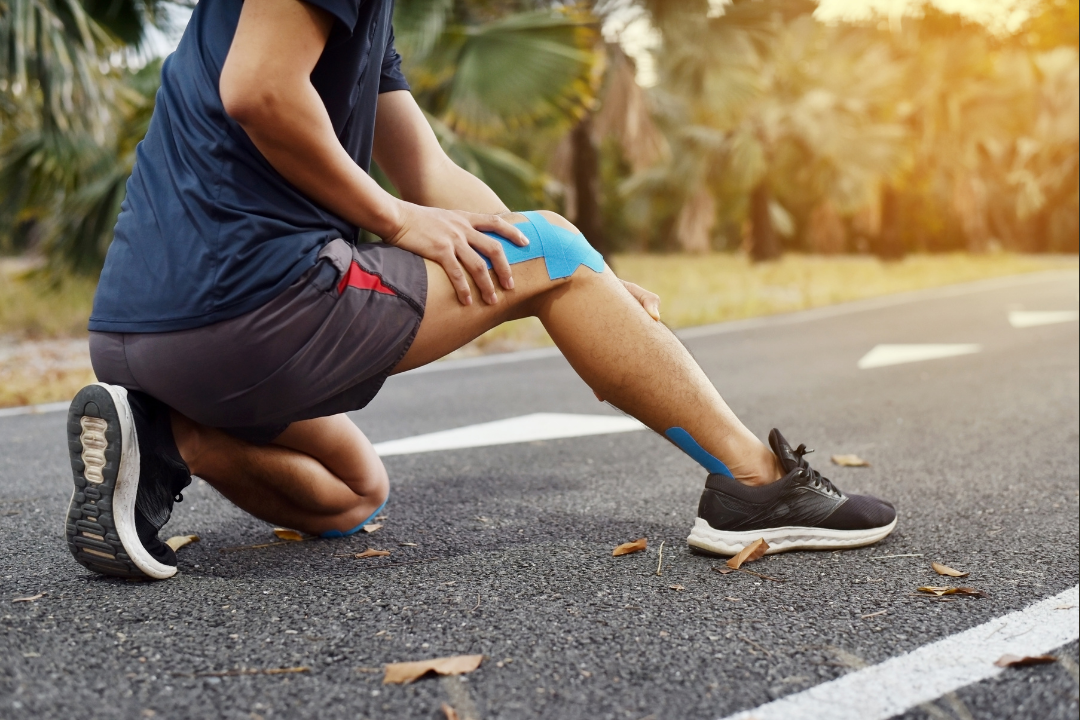
Running is a great way to get some exercise as it has several different health benefits, but it can also be harmful to some. Knee pain is most common with runners, but you can treat it with simple solutions. If you love running and have not been affected yet, continue reading to learn how to prevent knee pain from starting.
Knee pain is common in runners, but you can treat it with simple solutions. And if it hasn’t affected you yet, learn how to prevent it from starting. Unfortunately, if you run regularly, you face a good chance of developing knee pain. During recent decades, as more people have taken up running, including greater numbers participating in marathons, running-related injuries have increased. In several studies examining injuries in marathon runners, knee injuries were by far the most common.
Knee Pain from Running: What Is Runner’s Knee?
Research has found that a condition called patellofemoral pain syndrome, also known as “runner’s knee,” accounts for up to 25 percent of all injuries that develop in runners. This problem typically causes pain around or just behind your kneecap. You’re likely to feel knee pain after you’ve been sitting down for a while with your knees bent, or when you run, squat, or climb stairs. The knee pain may feel dull or sharp. You may also notice a popping or clicking feeling in your knee.
At the knee joint, your thigh bone (femur) and shin bone (tibia) come together. Your kneecap (patella) is aligned in a groove at the bottom of your femur, and movement within this groove is referred to as patellar tracking. If your kneecap doesn’t move properly in this groove, it may cause runner’s knee as you bend and extend your leg while running,.
Runner’s Knee: Risk Factors
Specific factors that can contribute to runner’s knee include:
- Weak thigh muscles
- Poor flexibility — tight thigh muscles and ligaments
- Overuse — running too much
- Trauma or injury
- Poor alignment of the kneecap, resulting in wear and tear of the kneecap’s cartilage
- Other causes of knee pain in runner include arthritis, damage to the cartilage that normally allows the bones to glide freely in the joint, or irritation of tendons in the joint.
Runner’s Knee: Prevention
According to the American Academy of Orthopedic Surgeons, there are several ways to prevent runner’s knee, including:
- Shedding extra pounds to lessen the stress on your knees
- Increasing your running speed and distances gradually
- Running on relatively soft surfaces when possible.
- Also be sure to stretch well before exercising and wear well-fitted, quality running shoes.
Runner’s Knee: Rest and Rehab
One of the most important steps you can take to treat runner’s knee is to simply take fewer steps. In other words, ease off the running. You may need to cut your mileage down or temporarily switch to another activity, such as swimming or cycling. Elevating your leg and putting a cold pack on the joint for a short time after running may also reduce knee pain.
Rehabilitation is another large component of the treatment of runner’s knee. Studies have found that many people with runner’s knee eventually get relief from their symptoms simply by doing exercises to address the problem. Your physician or physical therapist can create a customized program of stretching and strengthening exercises specific to the cause of your runner’s knee.
Other common treatments include:
- Wearing special inserts in your shoes
- Wearing a brace or taping the kneecap for support during activity
- Surgery to remove damaged cartilage or to realign the patella if other treatments don’t resolve the problem
- By taking some steps to prevent knee pain caused by running, you’ll be able to continue your workouts without a problem. If you have symptoms of runner’s knee, paying attention to your knee pain and taking care of it swiftly to avoid further injury are key to continuing to do what you love — running.
If you need expert advice or further treatment for your specific condition, seek a professional.
Call 303-287-2800 for an appointment today!
Original article published on everydayhealth.com







